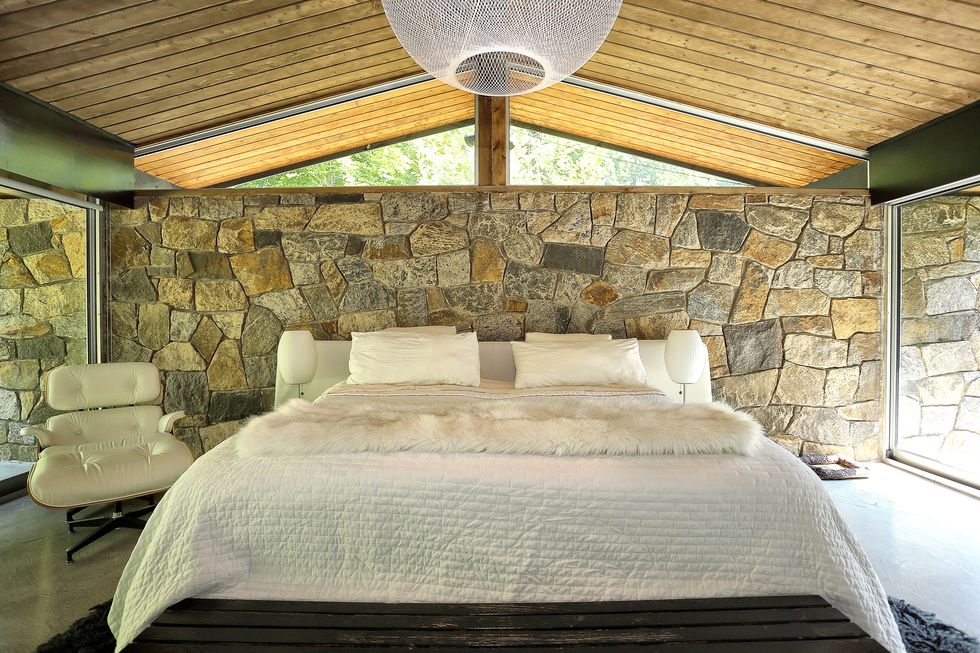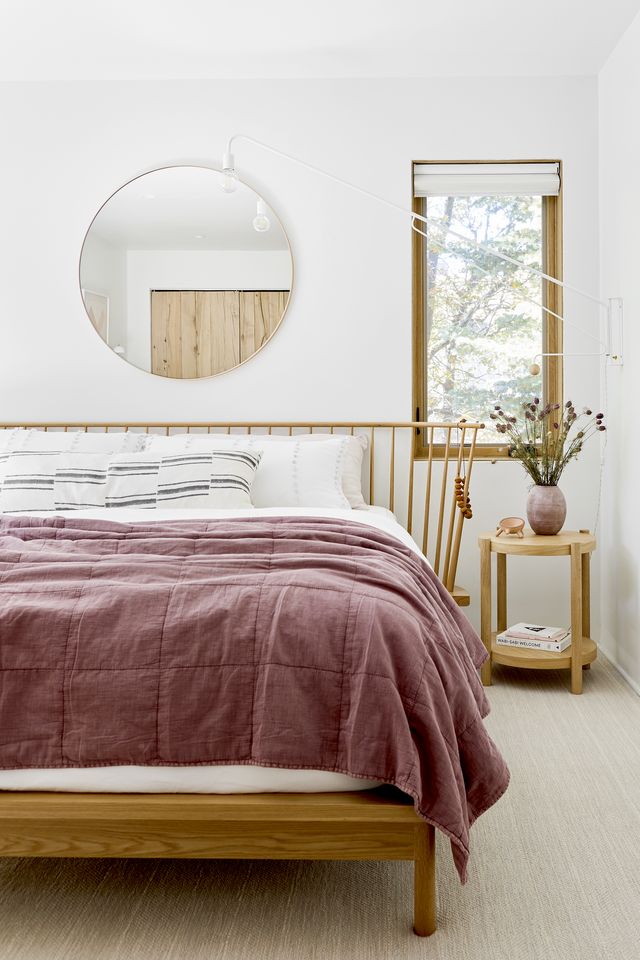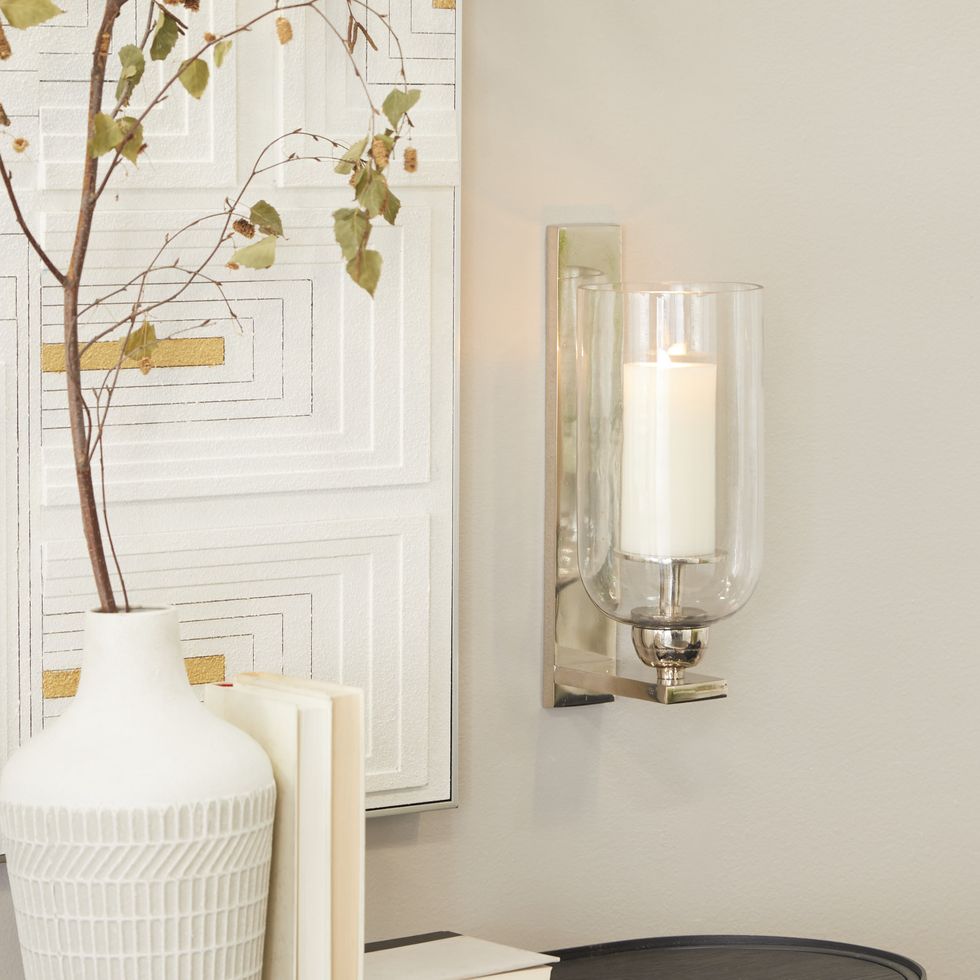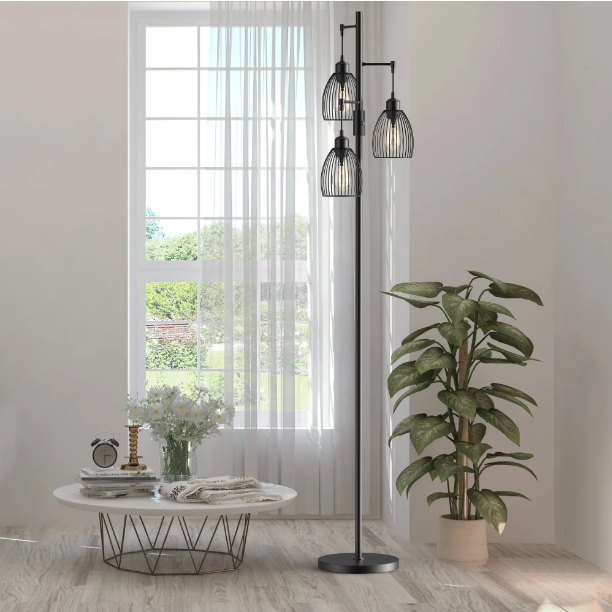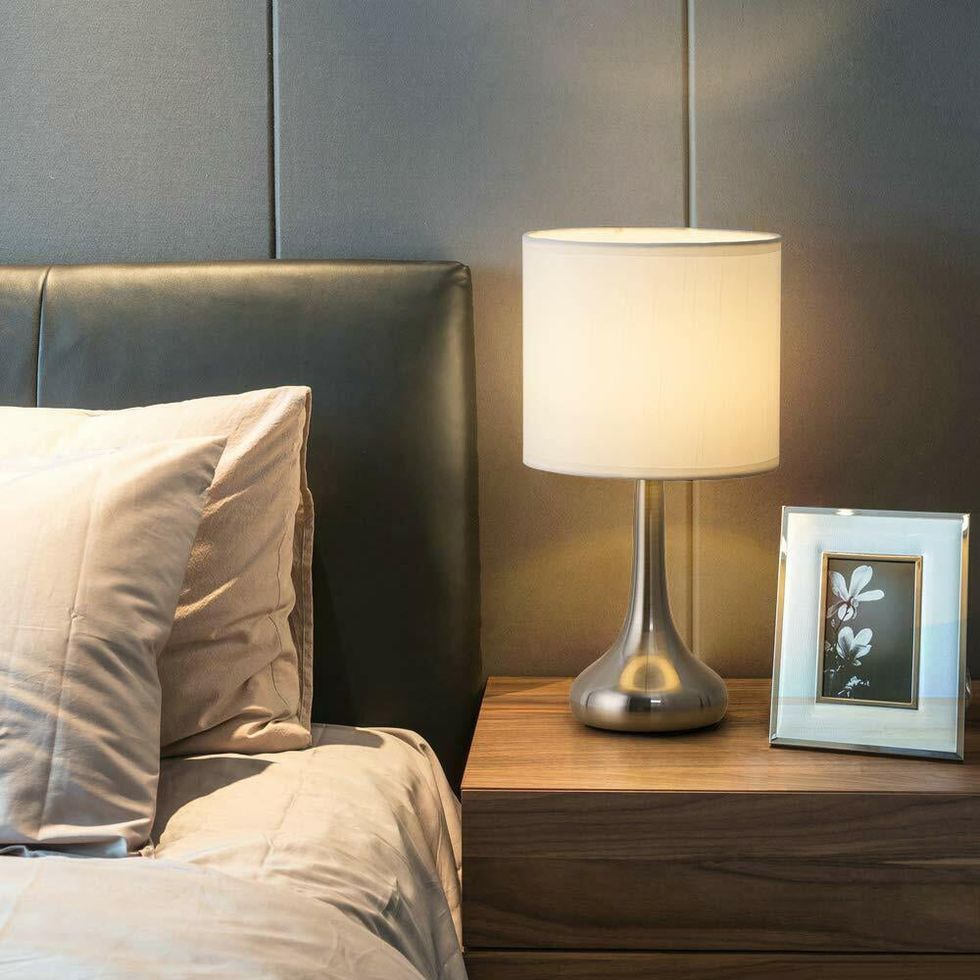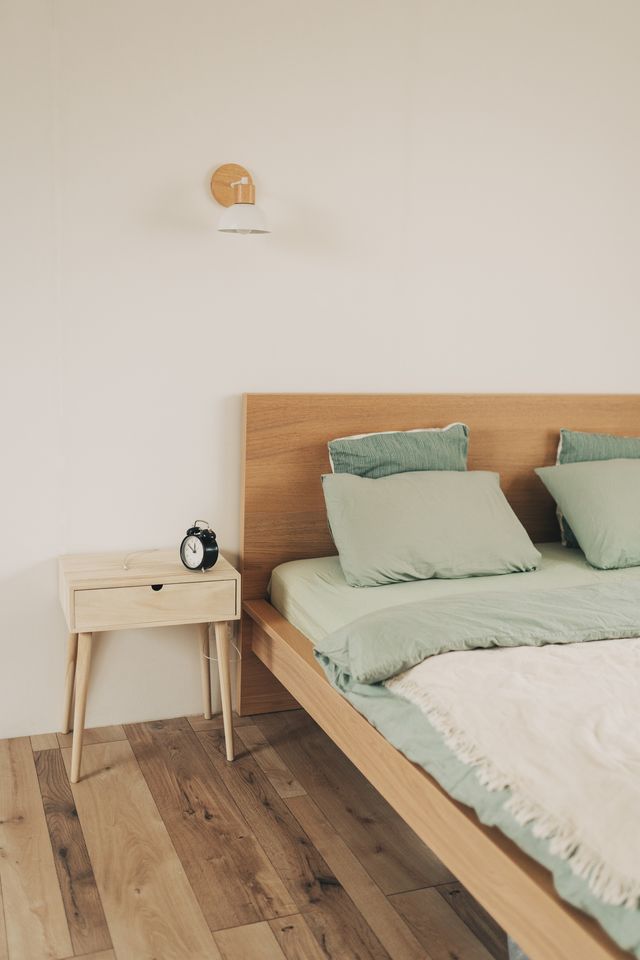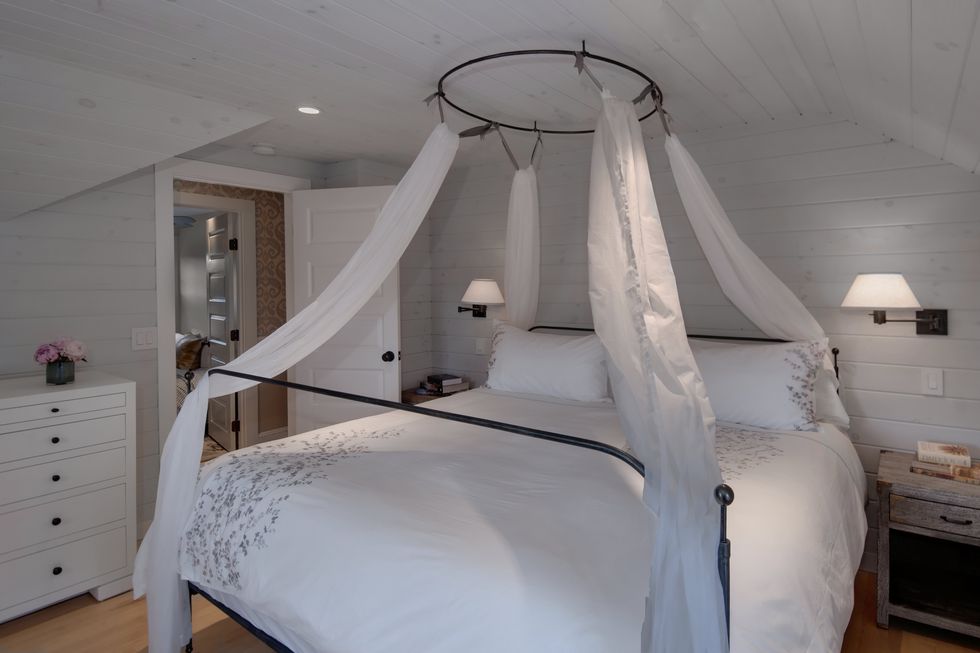Whether with neutral colors, warm lighting or plush textures, your bedroom should exude feelings of calm, peace and balance. Feng shui, an ancient method originating in China, believes that the placement of your furniture — as well as the colors and materials within a space — have a critical impact on your health and wellbeing. Intentional design choices in the bedroom may improve your relationships (or help you seek new ones), improve your quality of sleep and optimize the flow of “Qi” (the good energy present in a space).
With the help of two feng shui masters and designers, we rounded up tips for building a good feng shui bedroom. Aside from love, relaxation and the lack of negative energy, “the number one reason to feng shui a bedroom is [to get] sleep that is deep and restorative,” says Dana Claudat, feng shui master.
Reiko Gomez, feng shui designer and author of More Than Just a Pretty Space. agrees the ancient concept is linked to love. “I once had a client who was having difficulty finding romance,” she explains. “When I looked under his bed, I found several years of tax files. He quickly took my suggestion to move the files out of the room; six weeks later, he called to let me know he started dating someone.”
Keep reading for tips on how to perfect your feng shui bedroom layout, and don’t forget to check out more of the best ways to feng shui your home:
The Best Feng Shui Plants | How to Feng Shui Your Kitchen | How to Feng Shui Your Living Room
1. Position your bed away from the door.
Ideally, your bed takes a commanding position in the bedroom and is located a comfortable distance from the door. For a sense of safety and calm, your bed should offer a clear view of the door and anyone entering. Conversely, it should never be placed beside the door or pushed up against a wall. “If you’re looking for a romantic partner, attract a relationship by literally making space for one,” adds Gomez, who suggests balance on each side of the bed.
Claudat says good feng shui bed placement can be achieved even if some of these rules are bent based on your own space and preferences — but mind these two important ones: “The only rules I truly don’t like to break are sharing a bed wall with a bathroom and sleeping directly beneath beams.”
2. Never use underbed storage.
“Today, it’s pretty common knowledge that storing anything under the bed is a no-no in feng shui,” says Gomez. Your bed should be lifted off the ground to allow energy to circulate freely underneath, and clutter underneath can prevent the natural flow and feel like “sleeping on problems.” Blocked energy can have a negative impact on your sleep or romantic relationships.
3. Double down on softness.
Go for soft bedding, upholstered headboards, plush rugs and textured drapes. “Where it’s good to create a balance of yin and yang (hard and soft) furnishings in the rest of the home, lean toward coziness in the bedroom,” says Gomez. You’ll also benefit from a plush rug or carpet under the bed, so it’s the first thing your feet touch each morning.
4. Choose the right colors.
Selecting colors that are soothing and attractive is a key part of feng shui. “When you are adding colors to a room, you can choose colors that bring you the type of energy that matches your intentions in life,” says Claudat. “It’s easiest to begin with neutrals in a bedroom — or less-saturated colors — then add rich hues as it matches with your intentions.”
If you have trouble sleeping or have a very fast-paced life, Claudat suggests choosing lighter, neutral shades that feel calming. But if you’re looking for a spark in a relationship or to live a more vibrant life — and you already sleep well — you might choose to embrace deeper, more saturated colors (like red).
5. Focus on soft mood lighting.
Avoid bright, overhead lighting and instead opt for table lamps, adjustable floor lamps or dimmable sconces. It’s also important to manage the amount of natural light in your space. “A bedroom that receives too much bright light throughout the day can cause sleep problems at night,” says Gomez. “Invest in good shades (preferably blackout) and consider keeping them partly closed even in the daytime, so the energy is calmer at bedtime.”
6. Clear clutter.
Even outside the practice and belief in feng shui, clearing clutter can have a “positive impact on the quality of every day,” Claudat says. “Clutter blocks the flow of positive energy and all the glowing vitality and great feelings that come along with it. Eliminating clutter from a bedroom — including any closets — has a profound positive impact on the quality of your sleep, mindset and mood.”
Clutter can mean a lot of things: piles of shoes, stacks of books or a jumble of knick-knacks. All clutter is bad clutter, but books, paperwork and materials related to work can make it extra difficult to put your mind at rest. “I like to minimize and curate books rather than eliminating them 100%,” Claudat says. “Pay attention to the messages and themes of your books and ask yourself, ‘Is this book what I’d like to dream about?'”
7. Limit technology.
As difficult as it may seem, reducing technology in the bedroom can help create harmony and improve your sleep quality. If you have a TV in the bedroom, Claudat suggests turning it off at least an hour before bedtime and setting your phone to airplane mode while you sleep. “If it’s possible, invest in a simple alarm clock and keep the phone out of your bedroom to create a more restful space.”
8. Pay close attention to symmetry.
In order to arrange a bedroom for good feng shui, take note of symmetry. “Balance is something you can feel, and that balanced feeling is calming and grounding,” Claudat says.
While not every room has space for nightstands, it’s one of the easiest ways to create harmony. “A bed with a nightstand and lamp on each side of the bed helps create the setting for a balanced relationship — especially for someone looking for a romantic partner, it helps attract them by literally making space for them.”
9. Be cautious hanging mirrors.
While mirrors are a great way to make an interior feel brighter and bigger, some feng shui experts believe that they are bad feng shui. Mirrors are thought to bounce energy around the room, which may cause sleeplessness. If you do want to hang a mirror in the bedroom, avoid facing them toward the bed.
10. Don’t be afraid to break the rules.
When you commit to adjusting your bedroom for feng shui — especially if the practice is new to you — it’s easy to feel overwhelmed. But try not to get bogged down by the rules. “Every home is different, every bedroom is different, and every person is different, so to try to apply every ‘rule’ of feng shui strictly can lead people down paths of confusion that don’t feel fantastic,” Claudat says.
Claudat notes that she’s seen clients place their beds in awkward positions or panic because they can’t fit two nightstands in their space, both of which are completely unnecessary. ” Trust your instincts to adjust things in your bedroom so that they feel better for you.”

Contributing Writer
Alesandra is a digital travel and lifestyle journalist based in Los Angeles whose work has appeared in Good Housekeeping, Woman’s Day, Prevention, Insider, Glamour, Shondaland, AFAR, Parents, TODAY and countless other online and print outlets. Alesandra has a masters degree in journalism with an emphasis on cultural reporting and criticism from NYU, and a bachelor’s degree from UC Berkeley. An avid traveler, she trots the globe with her husband and their twins.
Associate Lifestyle Editor
Alyssa Gautieri (she/her) is the associate lifestyle editor for Good Housekeeping, where she covers all things home and interior design. Prior to joining GH in 2022, she wrote for publications including ELLE Decor, Chairish, BobVila.com, Unique Homes Magazine and LODGING Magazine, in addition to crafting product copy for home brands like BrylaneHome and VIGO Industries.

